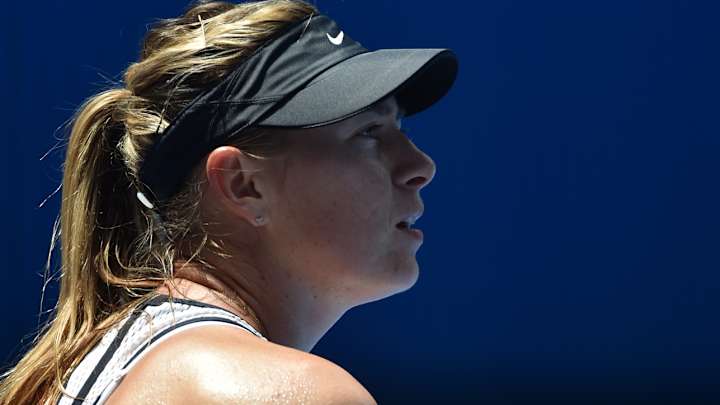Maria Sharapova has two-year suspension for doping reduced to 15 months

Tennis star Maria Sharapova's appeal of her two-year tennis ban over doping has been reduced to 15 months, the Court of Arbitration for Sport announced on Tuesday.
She will be eligible to compete again in April 2017, meaning she will miss the Australian Open but will be able to compete in the French Open.
In its statement, the CAS said they did not agree with "many of the conclusions of the [ITF] Tribunal."
Sharapova, a five-time Grand Slam champion, was suspended by the International Tennis Federation after testing positive for Meldonium, also known as Mildronate, at the Australian Open in January. The drug is not approved for sale in the United States, where Sharapova trains and lives.
Sharapova said in a statement that she is "counting the days" when she can return to the court.
"I have taken responsibility from the very beginning for not knowing that the over-the-counter supplement I had been taking for the last ten years was no longer allowed," Sharapova said. "But I also learned how much better other Federations were at notifying their athletes of the rule change, especially in Eastern Europe where Mildronate is commonly taken by millions of people."
"Now that this process is over, I hope the ITF and other relevant tennis anti-doping authorities will study what these other Federations did, so that no other tennis player will have to go through what I went through. And to my fans, (Hello SharaFamily!), I thank you so much for living and breathing so many of these tough months together. During this time, I have learned the true meaning of a fan and I am so fortunate to have had your support. I’m coming back soon and I can’t wait.”
HEAD CEO Johan Eliasch went further in his criticism of the process, questioning Olympic athletes who were given therapeutic use exemptions and allowed to compete, adding there needs to be a "wholesale comprehensive review and change in the anti-doping system" to identify performance-enhancing drugs.
Sharapova originally announced the positive test in a press conference, and said she had been prescribed the drug since 2006 to treat a family history of heart disease.
Sharapova also claims that she was unaware the drug was added to the World Anti-Doping Agency's list of banned substances on Jan. 1, 2016. The drug has been found to boost blood flow and enhance athletic performance.
The ITF initially determined that Sharapova may not have had intent to cheat but was “very significant at fault” for the positive test.
• Beyond the Baseline Podcast: Eric Butorac on new USTA role, retirement
She initially appealed the suspension and hoped for a ruling in July with the aim of returning to competition for the 2016 Olympics in Rio de Janeiro, but her team and the ITF needed more time to investigate and prepare their cases.
Sharapova would have returned to competition in Jan. 2018, if the ruling had been upheld.
– Chris Chavez and Scooby Axson
